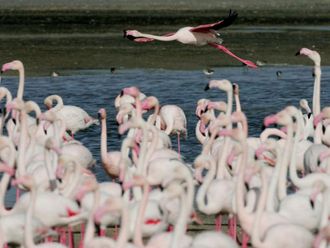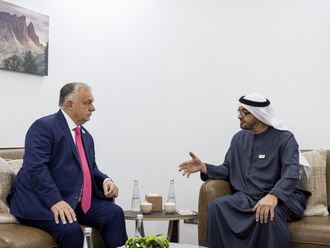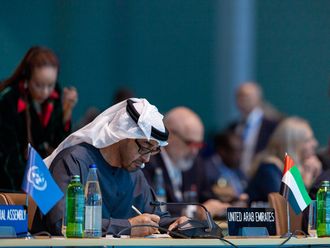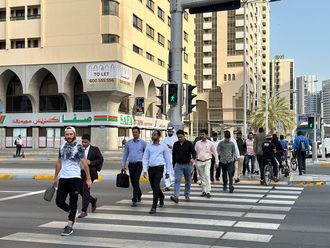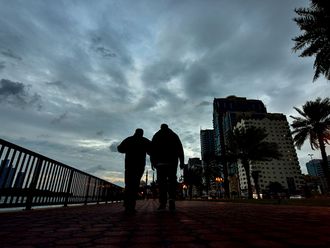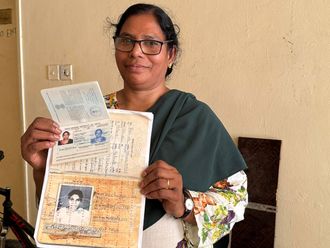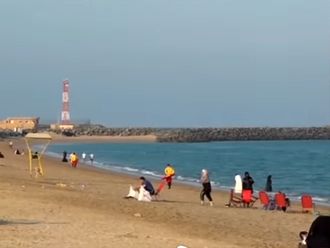
Abu Dhabi: Developing countries are to be offered renewable energy resources at an affordable price, thanks to a UAE programme, the 11th World Renewable Energy Conference (WREC) in Abu Dhabi heard on Sunday.
Mohammad Al Bowardi, Secretary General of the Executive Council of Abu Dhabi Emirate and Managing Director of Environment Agency — Abu Dhabi (EAD) said: "Abu Dhabi Future Energy Company — Masdar — has invested in the financial and human resources necessary to achieve its goals and to face the challenge of providing renewable energy sources at a cost that can be available to developing countries."
The five-day conference, being held under the patronage of Shaikh Hamdan Bin Zayed Al Nahyan, the Ruler's Representative in the Western Region and Chairman of the EAD, is to help protect energy supply without damaging the environment, and improve renewable energy information and education. More than 500 scientists, researchers and experts from 92 countries are attending the conference, which has been organised by the EAD and the World Renewable Energy Network (WREN) in the UK. It will end on Thursday.
Al Bowardi said in his inaugural speech that Abu Dhabi and the UAE would like to become one of the world's leading countries in its transition towards sustainable development.
"Today not only do we host the International Renewable Energy Agency, we continue to preserve our fragile biodiversity, protect our native species from extinction and raise environmental awareness," he said.
Urban planning
Al Bowardi said: "The concept of sustainable development is based on three essential pillars: economic development, social development and environmental sustainability. When we develop our emirate's strategy and policies, we aim to maintain an important balance between these areas. Abu Dhabi Vision 2030 also reflects the importance we've given to environmental sustainability," he said. He stressed that "The UAE, like the rest of the world, believes in the importance of shifting towards sustainable urban planning for cities, and the creation of technologies to generate renewable energy to ensure the reduction of irrational exploitation of fossil energy sources".
He said the UAE has taken the necessary steps to achieve international standards when it came to environmentally friendly buildings and renewable energy.
World Renewable Energy Conference chairman Professor Ali Sayegh said at the opening session: "World Renewable Energy Network was established in 1990 with a founding membership of 22 countries.
"Twenty years later we have 158 countries. This is our 20th anniversary and it is happening in the country which had completely embraced renewable energy by having the largest renewable energy city in the world — Masdar," he said.
Professor Ali Sayegh said: "The formation of Masdar by General Shaikh Mohammad Bin Zayed Al Nahyan, Crown Prince of Abu Dhabi and Deputy Supreme Commander of the UAE Armed Forces, gave a signal to the world that Abu Dhabi, an oil exporter, is setting a unique example up and showing the young generation that care of the energy through clean energy — renewable sources — is the way forward to suitable future for all generations to enjoy."
Projection: Double-digit growth
By 2050, about 50 per cent of world's energy needs could be met by renewable energy, said interim Director General of the International Renewable Energy Agency (Irena) Helene Pelosse, at the conference. The global consumption of renewable energy is currently 18 per cent, she said.
Pelosse said there could be double-digit growth rates of photovoltaic (solar cell) and wind power in the coming years, when it was expected that 60 per cent of new energy sources in Europe would come from renewable energy.
Pelosse said there were six main sources of renewable energy: bio-energy (agricultural and industrial residues, waste, forests, energy crops), geothermal, hydropower (large and small), ocean (wave, tidal, osmosis, thermal), solar (photovoltaic, solar thermal) and wind (on-shore and off-shore).
In 2009, sources of renewable energy were: large hydropower (920 gigaWatts), wind (159 gW), small hydro power (85gW), biomass power (54gW), grid-connected solar photovoltaic (21gW), geothermal power (11gW), concentrated solar power (0.7gW) and tidal power (0.3gW), she said.


